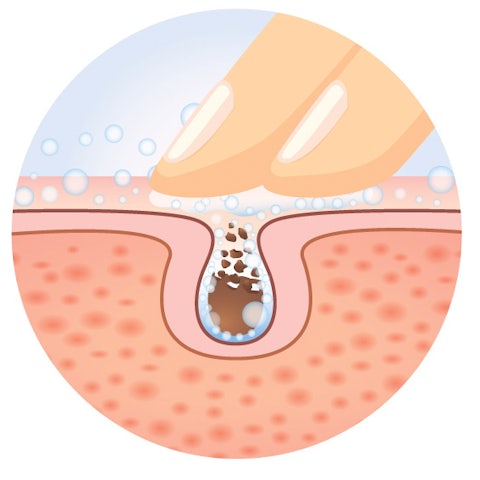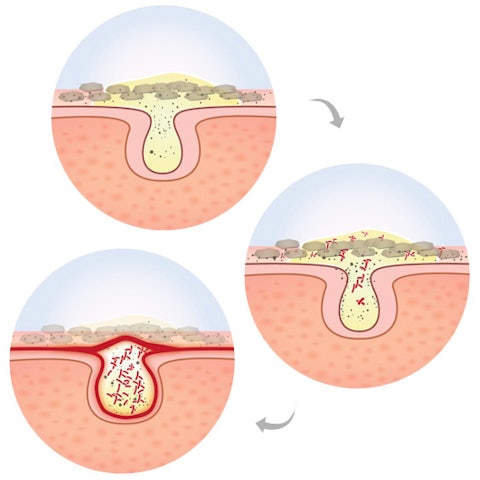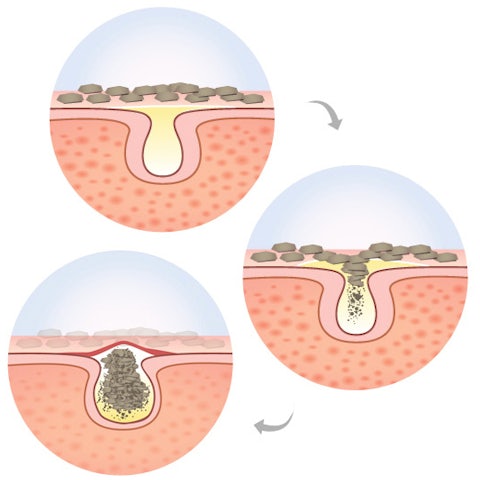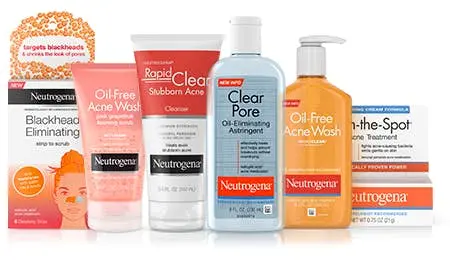You may be wondering what causes acne and, more importantly, how to get rid of acne fast. We're here to help. In Part Two of our quick-and-easy "All About Acne series", we explain those causes and offer our recommended products to curb breakouts so you can get on the fast track to clearer skin.

Clogged Pores
Pores become clogged with a number of triggers like oil, dry and dead skin cells and bacteria. It's important to keep your pores clear to prevent whiteheads, blackheads and other types of acne. To promote quicker cell turnover and help keep pores nice and clear, use a medicated cleanser with Salicylic Acid, a powerful acne-fighting ingredient.
Our Recommendation: Neutrogena® Oil-Free Acne Wash Cream Cleanser

Oily Skin
The skin's oil glands naturally create sebum, which protects and hydrates your skin. Sometimes your body produces too much sebum and it mixes with dead skin cells. As a result, this unwanted mixture can get trapped in your pores. When this happens, it promotes the growth of bacteria Propionibacterium acnes and can cause breakouts. Hormones and your environment also play a role in how much oil your skin produces. The bottom line: Too much oil can lead to breakouts.
Our Recommendation: Neutrogena® Oil-Free Acne Stress Control Power Clear Scrub

Dead Skin Cells
Sometimes when you suffer from acne or acne-prone skin, dead skin cells build up on the surface leading to dryness, dullness and flakes. If your skin looks and feels dull, rough or uneven it's because those cells aren't naturally sloughing off fast enough. A gentle exfoliating scrub will smooth away roughness without over-drying or irritation.
Our Recommendation: Neutrogena® Oil-Free Acne Wash Pink Grapefruit Foaming Scrub

Bacteria
The good news is some bacteria live on normal skin and don't cause any harm. The bad news is Propionibacterium acnes can thrive on your skin when excess oil and dead skin cells build up in the hair follicles. When a plugged pore becomes infected with bacteria, inflammation occurs as a result. Benzoyl Peroxide is proven to absorb deep down to pores and kill acne-causing bacteria.
Treat with Stubborn Acne AM Treatment
Sources: http://www.mayoclinic.org/diseases-conditions/acne/basics/causes/con-20020580 http://www.top10homeremedies.com/how-to/get-rid-clogged-pores.html http://health.howstuffworks.com/skin-care/information/anatomy/shed-skin-cells.htm http://www.dermnetnz.org/topics/bacterial-skin-infections/
Want to learn more about Acne? Check out these articles next:

Let's Solve It
Ready to find your personalized acne routine?





